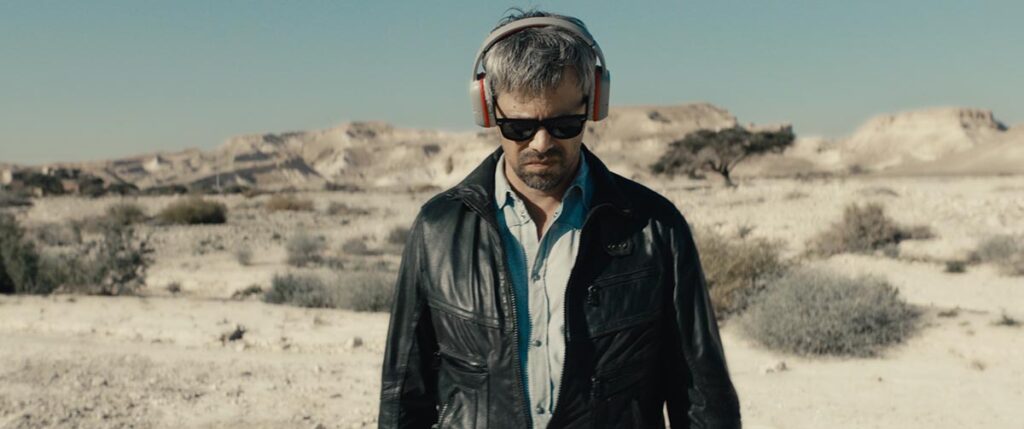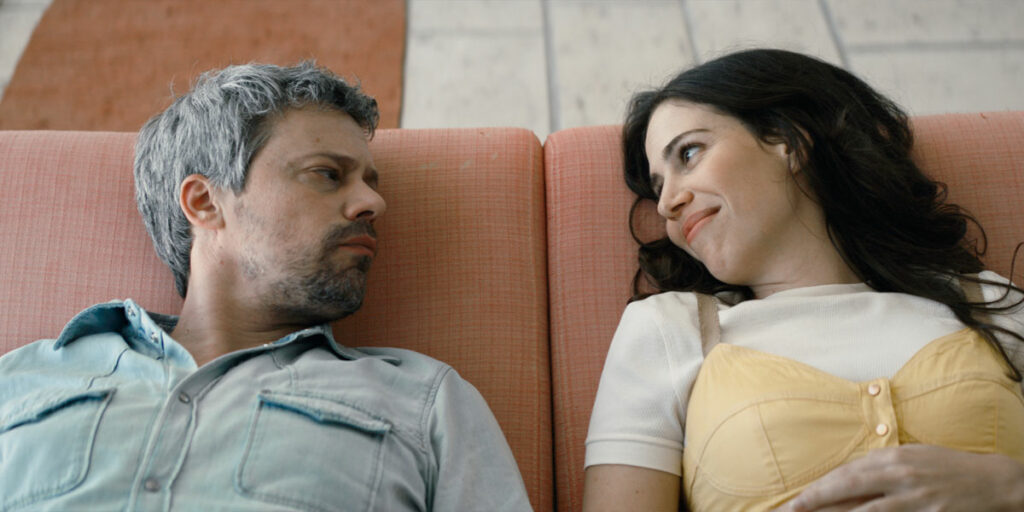Ahed’s Knee, the latest film from Synonyms director Nadav Lapid, finds him channeling real life tragedy into something furious, abrasive, and unabashedly ugly.
Buildings pass us by as the camera peers up at them, rain falling and streaming across the lens. This opening shot of Nadav Lapid’s newest film, Ahed’s Knee, immediately announces itself. Throughout the ensuing 109 minutes, Lapid’s distinctive style aims to blur the lines between reality and fiction. Much of Ahed’s Knee was based on Lapid’s own experiences with state-imposed censorship as well as the death of his mother, who also collaborated with him on his screenplays. The entire film rages with the frustration of artistic censoring, with the pain of losing a dear loved one, as well as the general political state of Israel. What results is an undoubtedly messy, even ugly film, but one which makes full use of Lapid’s assaultive visual style.
The narrative focuses on Y (Avshalom Pollak) who is an Israeli filmmaker whose mother is dying of lung cancer. He serves as a sort of surrogate for Lapid, combatting many of the issues that Lapid has recently faced but with an untethered, almost bestial rage. We find him traveling to a small town in Israel to show andn discuss one of his films, but in order to be paid must sign paperwork agreeing to discuss only state-approved topics (such as Judaism, the Holocaust, and fraternity). Besides being reluctant to sign the paperwork, Y has agreed to secretly record the government official hosting the screening in an effort to expose the scope of state-approved censorship.
Ahed’s Knee is a furious film nearly torn apart by all its moving parts: the dying mother, the censorship, the fear Y feels at seeing his country lean towards fascism. None of it coalesces into something coherent, but it is undeniably charged and intriguing. Y in particular makes for an interesting protagonist. In many respects, he is representative of Lapid. But while Lapid signed his own paperwork approving of the censorship of his art for a screening, Y is much more torn and, in one memorable monologue, voices all of his ill-feelings toward his country.

However, the visuals are much tighter than the story itself. Frequently unconventional shots and editing are used that express Y’s mental state. In one scene, the camera starts shaking violently. In another, when Y is having a conversation with the government official, Yaholom (Nur Fibak), the camera hyperactively swings back and forth between the two, as if bored by all the empty talking that is happening. It’s as if the camera itself is rebelling at the censorship that Y is stifled by. The visuals are energetic and wild, encapsulating both the repressed emotions of Y and Lapid. At times, the camerawork may come off as self-involved, but Lapid always makes sure to craft an interesting image and his visual experimentations are often engaging in their own right.
Ahed’s Knee ends up as interesting but overwhelming, both emotionally and aesthetically. Lapid throws so many elements out there, and while he has the formal control to back up his more left-field visual choices, the narrative especially ends up feeling incoherent and messy. It is especially unfortunate that the subplot involving Y’s dying mother is only alluded to, we can infer the distress this causes Y but it’s not directly stated. The focus is mostly on the film being about what is not being said, what is hidden beneath the surface, censored. But while the film often works on an intellectual level, there’s little emotional weight to back it all up.
Ahed’s Knee is now available to rent or own on all major VOD platforms.

